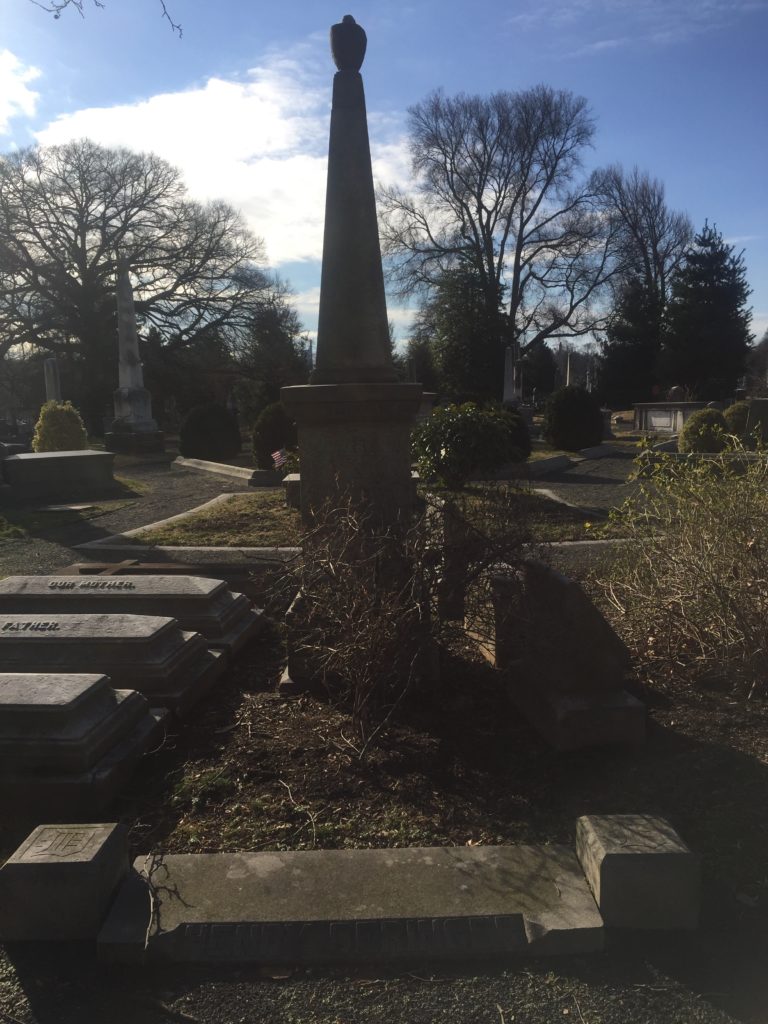Erik Visits an American Grave, Part 984
This is the grave of Henry Deringer.

Born in 1786 in Easton, Pennsylvania, Deringer grew up in a gun manufacturing family. His father was a reasonably well known gunsmith and moved to Philadelphia shortly after the boy was born to practice his craft. His father helped developed the Kentucky rifle for the military, so the boy had a clear career ahead of him. Moreover, his father sent him to Richmond to apprentice with a different gunsmith so he would gain more experience.
In 1806, Deringer finished his apprenticeship and moved back to Philadelphia, where he opened his own gun shop. Americans, always a violent people, loved their guns and the men who could make good ones. So Deringer was in a good place to make some money. Deringer’s business soon expanded to military work. That included being the guy to create rifles prized by Native American warriors, who got these rifles as part of the treaties the U.S. government signed with them to force them off their land. So that was an interesting specialty. He got the contracts to produce the 1814 Common Rifle and 1817 Common Rifle, both of which were useful enough to still be used in the Civil War. He also produced a lot of dueling pistols that the rich could kill each other with, especially the southerners who saw dueling as a point of honor.
But what made Deringer famous was, well, the Deringer. These were high-caliber, short-barreled little pistols that carried a big punch. They are very tiny. John Wilkes Booth shot Abraham Lincoln with a Deringer (quite a legacy!). I saw the pistol in the Ford’s Theater museum. I was amazed at just how small it was. It was a .44 caliber, but easily fit in your pocket, or really in the palm of your hand. Of course, when you don’t have real security and a dude can just walk into the box and put the pistol at the back of your head, a small gun like that can certainly do the job. Oddly, Deringer was quite indifferent to maximizing his profit by filing patent claims, so lots of gun makers stole his ideas and paid him nothing. Deringer fought it after the fact, though he didn’t have much of a leg to stand on thanks to his patent indifference. But he did win a major case in Deringer v. Plate that was ruled upon by the California Supreme Court, which became a big time patent case in American law.
I could go into further detail about the guns and such, but I don’t care.
Deringer died in 1868. He was 81 years old.
Henry Deringer is buried in Laurel Hill Cemetery, Philadelphia, Pennsylvania.
If you would like this series to visit other figures associated with America’s ridiculous gun culture, you can donate to cover the required expenses here. Eliphalet Remington is in Ilion, New York and Benjamin Henry is in New Haven, Connecticut. Previous posts in this series are archived here.


